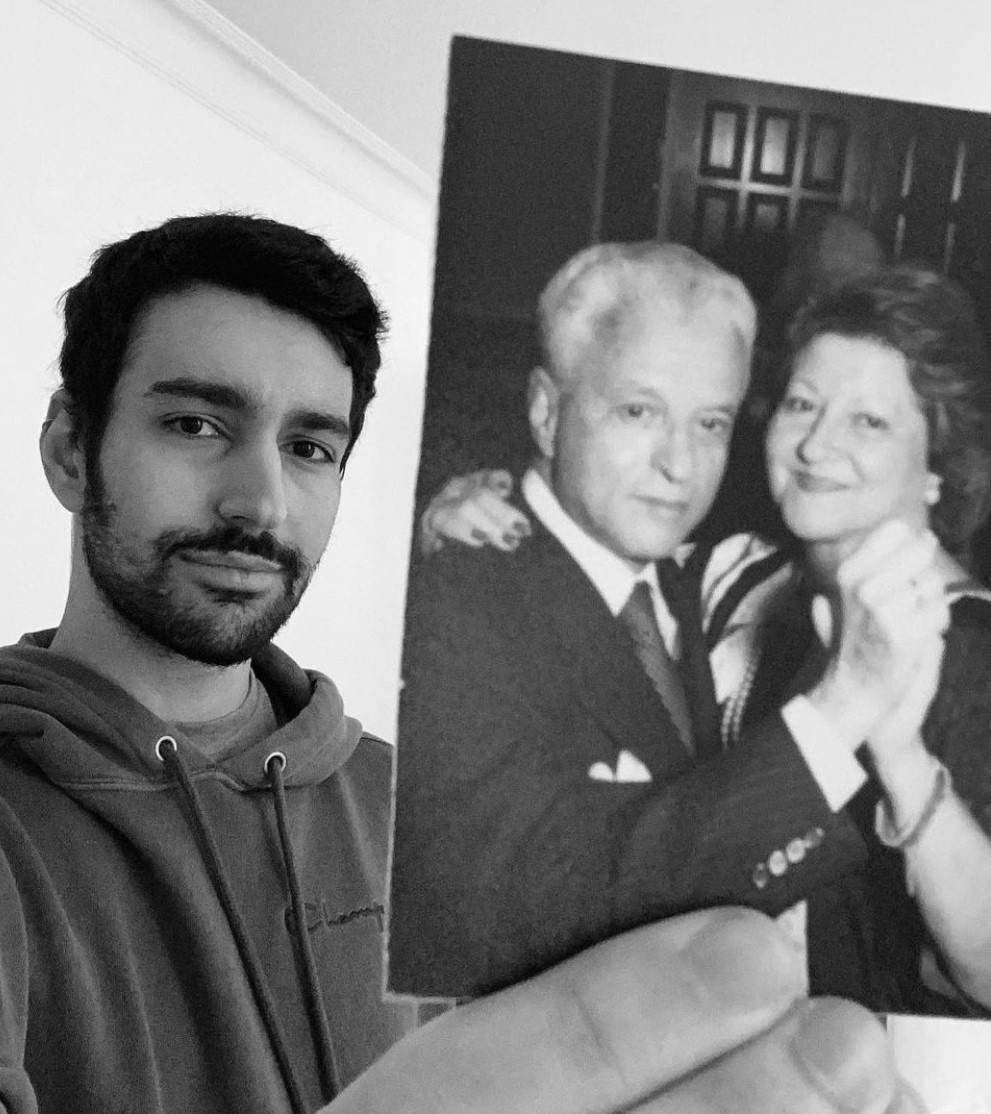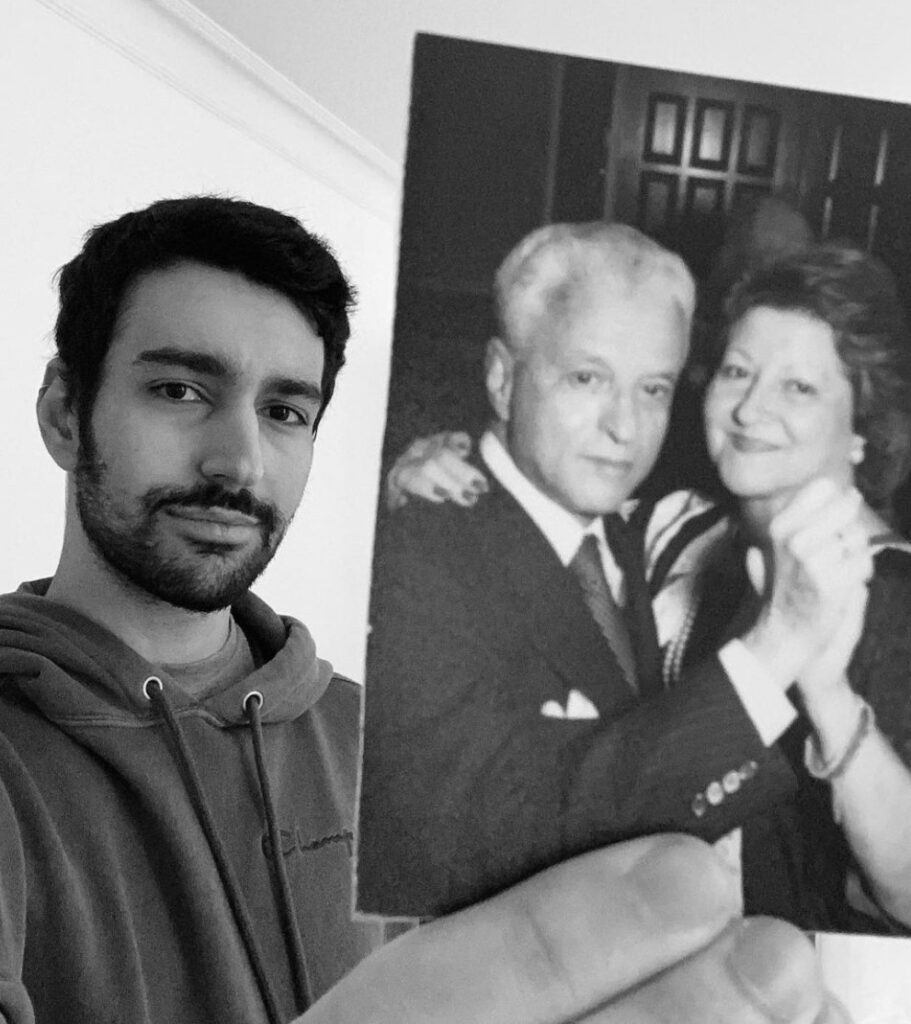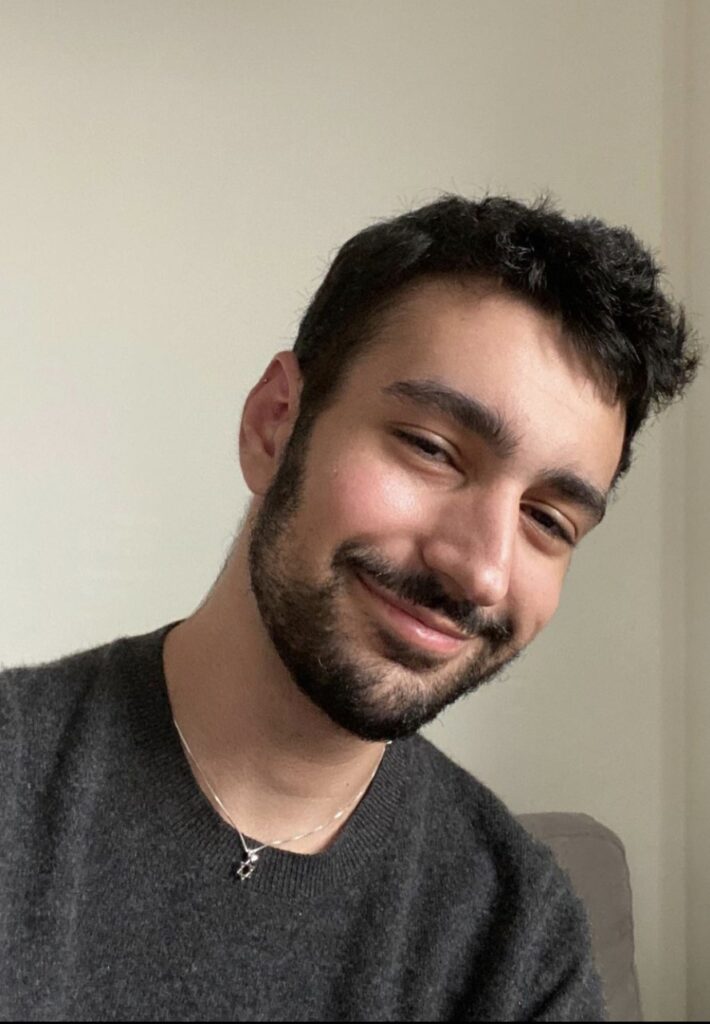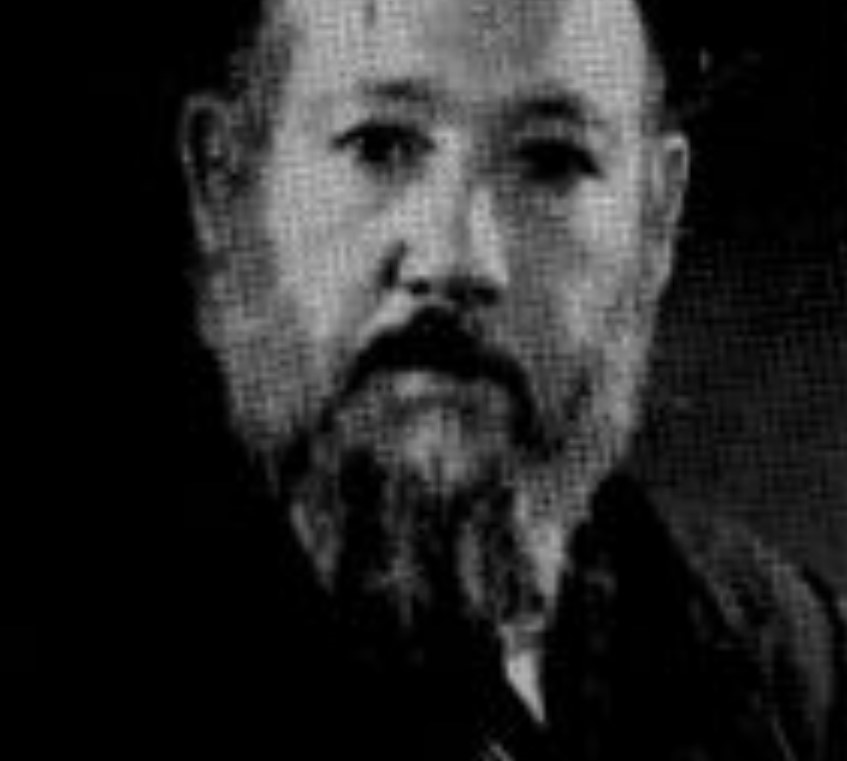The New Jewish Activism: Isaac de Castro

In Memory of Sylvia Rocklin-Guberman, A”H, a woman of valor in the spirit of Esther. A life-long political and civil rights activist on the local, state, and national levels, she was never one to tolerate an injustice.
Click here to dedicate a future issue in honor or memory of a loved one.

The Sephardi Ideas Monthly is made possible by generous readers like you. Become a Patron of the Sephardi Ideas Monthly via Patreon and your name will appear in each edition along with essays and interviews from the rich, multi-dimensional world of Sephardi thought. Thanking you in advance!
~~~~~~~
Sephardi Ideas Monthly is a continuing series of essays and interviews from the rich, multi-dimensional world of Sephardi thought and culture that is delivered to your inbox every month.
This month’s issue of Sephardi Ideas Monthly features an interview with Isaac de Castro, a young, spirited entrepreneur from the world of Jewish activism, especially on college campuses.
Recently listed among JNS’ “Top 40 Latin American pro-Israel advocates and leaders,” Isaac de Castro comes from a mixed Ashkenazi and Sephardi (Hispano-Portuguese, Ottoman, Syrian) background in Panama and is the founder of “Jewish on Campus,” a Jewish advocacy NGO. He is also the co-host of the podcast, “Jewish Identity Crisis” (soon to be hosted by OpenDor Media), a conversation between Isaac and Julia Jassey that explores the particulars of multi-cultural, diaspora Judaism. Isaac will be speaking on the “Turning the Tide of Hate: Grassroots Activists Tell Their Stories” panel at the Combat Anti-Semitism Movement’s 1st Summit tomorrow (1 March).
Unsurprisingly, Isaac, an architecture major at Cornell University, is very active on social media. His byline? “The [Z]ionist your professors warned you about.” Most recently, Isaac took a strong stand on Twitter against the politically-informed portrayal of Jews, especially Greater Sepharadim, in the proposed California Ethnic Studies Model Curriculum’s (ESMC’s) 3rd draft, writing: “Jews are not defined by antisemitism, discrimination or oppression. We are defined by our culture, resilience, truth, and morality. I vehemently oppose the California Ethnic Studies Curriculum’s aim to define us in this way and seek to create division. They are wrong.” The ASF’s Board of Directors agrees.
Isaac was gracious enough to take some time and respond to a few questions from Sephardi Ideas Monthly.

(Photo courtesy of the Isaac/Instagram)
The New Jewish Activism
Sephardi Ideas Monthly (SIM): Please tell us about the organization that you founded, “Jewish on Campus,” that recently transformed from being an “Instagram Account” into an NGO.
Isaac de Castro:
Jewish on Campus is an organization that posts anonymous accounts of antisemitism on college campuses in the United States and abroad. We started in July of 2020 and have grown to more than twenty-seven thousand followers on Instagram alone. Today, we do more than post stories, but also make educational content on Zionism and Judaism, and work with university administrations to create more welcoming spaces for students on campus. Our core goal remains the same, to amplify the voices of Jewish students and fight for our inclusion.
SIM: What are the different forms of antisemitism that students face on campus today? And how do these forms of antisemitism manifest themselves in day-to-day practice?
IdC:
Most would categorize right-wing and left-wing antisemitism as the most common forms of antisemitism in the United States. Both of these versions manifest themselves on college campuses. Nonetheless, right-wing antisemitism smacks us across the face. Left-wing antisemitism, disguised as criticism of Israel, seeps through the cracks and is defended by proponents of “academic freedom” and “social justice” and by professors and students themselves. Antizionism is today’s antisemitism, and its breeding ground is university classrooms. Our goal must be to recognize it as such.
SIM: You have a podcast entitled, “Jewish Identity Crisis.” Could you please share something about the different elements of your identity, and how they fit together?

IdC:
Are Ashkenazi culture and Sephardi culture beautiful? Absolutely. Are they important? Tremendously. But we also need to remember that diasporic cultures are additions to the core of our identities as Jews, which connect all of us through shared ancestry in the land of Israel. Being both Ashkenazi and Sephardi may seem conflicting to some, but to me, being a mesh of things is not conflicting at all; it’s a consequence of diasporas converging and there’s few things more beautiful or whole than that.
SIM: How did your recent trip to Spain help you to recognize a commonality between the Sephardi and Ashkenazi dimensions of Jewish history?
IdC:
Going to see Jewish sites in Spain, a commonality that struck me was the same gut-wrenching feeling that I felt visiting concentration camps in Poland. You can tangibly feel the pain, the loss, and the emptiness of once vibrant Jewish communities.
SIM: What are your plans, and dreams, for the future?
IdC:
There is a lot of work to do in the Jewish community, from both the outside and from the inside. I remain extremely passionate about fighting antisemitism, but not for the sake of just that. I have joined the frontlines of this issue because I believe there is value to Judaism and the Jewish people. It comes from my love of Sephardi culture, Ashkenazi culture, and Mizrahi culture, of Ladino, Yiddish and Judeo-Arabic. We are a people with a rich and complex history and an ethical backbone that has defined modern society. Hopefully, I can help evolve these conversations, promote unity, and keep defending our community.
~~~~~~~
Feature: Issac de Castro on the Hispano-Portuguese Jews of Curaçao
“Hey, @isaacdecastro here… Let’s talk about the Hispano-Portuguese Jews of Curaçao! 🕍
The first Jewish immigrants to the island, were Sephardic Jews from the Netherlands, Portugal, Spain, and other parts of Europe who arrived in the mid 17th century. The Jews of Curaçao developed their own liturgy and traditions, many of which still survive today. For instance, It is traditional that brides walk to the chupah with the Curaçaoan melody of Baruch Habah.
Pictured here is the Mikvé Israel-Emmanuel Synagogue in Willemstad, which is the oldest surviving synagogue in the Americas. You’ll notice sand on the floor on the pictures below. This is a tradition meant to remind the congregants of the 40 years spent in the desert, and their Portuguese ancestors who used sand to muffle their covert prayers, specifically the ‘amida.’
In the late 18th century, my family emigrated to Panama, where a small Hispano-Portuguese Sephardic community still survives to this day.”
~~~~~~~

Hakham Masoud Revach

(Photo courtesy of HeHaCham HaYomi)
The sage for the month of February is Hakham Masoud Revach (1908-1979).
Masoud Revach was born in 1908 in the Moroccan village of Eskorah, near Marrakesh. Young Masoud began to study at the Or Hatorah Yeshiva in 1918 (the year it was founded), and after he reached Bar Mitzvah age, he went on to study at the Etz Haim Yeshiva in Tangier. In 1925, at the age of 17, Hakham Masoud Revach was ordained to the rabbinate. He soon relocated to the capital, Rabat, where he established a Talmud Torah and yeshiva.
But Hakham Revach was not only involved in education. He also served as head of the city’s ritual slaughterers and officiated in the local marriage and divorce court.
Hakham Revach visited the Land of Israel on several occasions. In 1962 he made Aliyah, and in 1965 Hakham Revach was invited to officiate as Rabbi of the city of Shlomi. He would remain in this role until the end of his life.
Hakham Masoud Revach passed away on 10 Adar, 5739 (10 March 1979), and was buried in Bnei Brak. After his passing, Hakham Revach’s grandson published Zichron Moshe, a collection of his grandfather’s articles and sermons.
In the following passage from Zichron Moshe, Hakham Revach teaches the religious and ethical obligation of strengthening communal and national unity:
What should a person do to ensure pardon and exoneration on Rosh Hashanah and Yom Kippur? One should be with the community, and join with the entire nation, for through unity one benefits from the exoneration of the general public by the Thirteen Principles mentioned in the Torah. As Hosea said, ‘Ephraim is addicted to images— Let him be’, meaning that when the nation of Israel were united, the Holy One, blessed be He, forgives them for everything. This corresponds with what we find in Tractate Yoma: The First Temple was destroyed because of three things it contained – foreign worship, incest and bloodshed. And why was the Second Temple, in which they dealt in Torah, mitzvoth and charity, destroyed? Because of gratuitous hatred. In the first case, the transgressions were exposed, and their end was revealed; the end of the latter, whose transgressions were not exposed, was not revealed. That is, all could see and know of the transgressions during the First Temple and knew why they had been punished. But in the Second Temple, where there was gratuitous hatred – something that remains hidden in the heart and cannot be revealed except to those who with hidden knowledge and to He who sees through the heart and entrails – their end, measure for measure, was not revealed. The remedy for this, therefore, is the reconciliation of hearts, to all be united as one. Even when the commandment to rebuke is called for, one should not do this out of hatred but do so according to ‘overt rebuke is preferable to hidden love’.
~~~~~~~
Sephardi Gifts:

Sephardi Voices, 1492-1992: A Study Guide
By Hakham Rabbi Dr. Marc D. Angel
What happened to Spanish Jewery after their expulsion from Spain in 1492? Where did the Sephardim settle, who were some of their leading thinkers and personalities, what were their continuing contributions to world Jewery?
Rabbi Angel brings us a rich treasury of historical documents. Spanish folklore; philosophical, ethical, and mystical tracts; and especially rabbinic responsa-all help us to understand the changing conditions that Sephardic Jews faced in their new worlds. Rabbinic responsa, which are based on halakhah, do not develop in a vacuum. New situations raise new questions, which in turn require new answers.
~~~~~~~
The Essential Pele Yoetz: An Encyclopedia of Ethical Jewish Living
By Rabbi Eliezer Papo; Translated by Hakham Rabbi Dr. Marc D. Angel
Pele Yoetz (“Wondrous Advisor”) is a work of ethical literature (musar) written by Rabbi Eliezer Papo (1785-1828), who was venerated by Turkish Sephardim as a saint and sage.
The Essential Pele Yoetz: An Encyclopedia of Ethical Jewish Living encompasses ethical precepts, religious guidance, moral instruction, and practical advice as they apply to all aspects of daily Jewish life. This volume is an abridged edition of the original work.
~~~~~~~
Upcoming Events or Opportunities:
| The ASF Institute of Jewish Experience presents: The Purim Experience: The Jews of the Great Silk Road Follow in the footsteps of the Bukharian Jewish merchants on the Silk Road and discover the ancient network of trade routes that were for centuries crucial to Eurasian cultural interaction. Explore with us the history of these roads connecting East and West, stretching from the Korean peninsula and Japan to the Mediterranean Sea. Understand the impact and the contribution that Central Asia’s Jewish communities of today’s Uzbekistan, Tajikistan, Kazakhstan, Turkmenistan, and Afghanistan made towards the development of this ancient path. We will learn about the Jewish presence in this area for over 2000 years, will look into their houses and read into the letters that the Jews of Central Asia exchanged for centuries with their fellow European Jewish communities. Monday, 1 March at 12:00PM EST Sign-up Now!  About the speaker: Manashe Khaimov is an Adjunct Professor in Jewish Studies, with a specialty in History and Culture of the Bukharian Jews at Queens College. Manashe was born in a city along the Silk Road, in Samarkand, Uzbekistan, where his ancestors lived for over 2000 years, which makes Manashe’s Jewish identity simultaneously Bukharian, Sephardic, Mizrahi, and Russian speaking. He is a fourth generation community organizer, informal Jewish educator, and a lifelong learner who brings his passion working with Jewish community. He is founding director and social innovator of the Bukharian Jewish Union, the founder of AskBobo.org, the only Bukharian online dictionary and the founder of The Jewish Silk Road Tours ™ walking tours in NYC. Manashe researched and produced several documentaries about Bukharian Jewish community as part of the Bukharian Lens project: The Untold Story of Bukharian Jews; The Untold Story of Bukharian Jews and Ashkenazi Jews Who Were Evacuated During WWII to Central Asia; Bukharian Roots. Manashe launched MEROS: Center for Bukharian Jewish Research & Identity at Queens College Hillel. Sponsorship opportunities available: info@americansephardi.org |
| 2021 Combat Anti-Semitism Movement Annual Summit The Combat Anti-Semitism Movement (CAM) is a global, interfaith coalition of over 310,000 grassroots members and over 300 partner organizations. Our coalition works tirelessly to eradicate Jew-hatred from the world. On March 1st, 2021, CAM will celebrate the second anniversary of its founding, and we want you to be a part of it! Join us and our coalition of partners at the first-ever Combat Anti-Semitism Movement Annual Global Summit. You will hear from a diverse group of international leaders and grassroots activists as we celebrate the last year’s achievements and discuss challenges that lie ahead. Anti-Semitism exists on all ends of the ideological spectrum and on all corners of the globe. We can only make a difference if we come together to fight it. Monday, 1 March at 1:00PM EST Sign-up Now! |
| The ASF Institute of Jewish Experience presents: New Works Wednesdays In our extended New Works Wednesdays series, Daniel Tsadik discusses his new book, “The Jews of Iran and Rabbinic Literature: New Perspectives.” Dr. Tsadik’s book addresses the question of Iranian Jewry’s familiarity with rabbinic literature from the 16th century to the beginning of the 20th century. Many of the book’s theses challenge and revise prevailing views that see this Jewry as largely isolated from world Jewry and its rabbinic legacy. Wednesday, 3 March at 12:00PM EST Sign-up Now!  About the author: A Fulbright scholar, Dr. Daniel Tsadik obtained his PhD in 2002 from the Yale University History Department. He authored several articles, a book entitled “Between Foreigners and Shi‘is: Nineteenth-Century Iran and its Jewish Minority” (Stanford University Press, 2007), another book entitled “The Jews of Iran and Rabbinic Literature: New Perspectives” (2019) which won the (Israel) Prime Minister Prize, and co-edited the book “Iran, Israel and the Jews: Symbiosis and Conflict from the Archaemenids to the Islamic Republic” (2019). From 2008 to 2020, Professor Tsadik taught at Yeshiva University, where he served as Associate Professor of Sephardic and Iranian Studies. His current research is on Shi‘ite-Jewish polemics. Order your copy of “The Jews of Iran and Rabbinic Literature: New Perspectives” now Sponsorship opportunities available: info@americansephardi.org |
| The ASF Institute of Jewish Experience presents: New Works Wednesdays In our extended New Works Wednesdays series, Ross Shepard Kraemer discusses her new book “The Mediterranean Diaspora in Late Antiquity: What Christianity Cost the Jews.” “The Mediterranean Diaspora in Late Antiquity” examines the fate of Jews living in the Mediterranean Jewish diaspora after the Roman emperor Constantine threw his patronage to the emerging orthodox (Nicene) Christian churches. Wednesday, 10 March at 12:00PM EST Sign-up Now!  About the author: Ross Shepard Kraemer is Professor Emerita of Religious Studies and Judaic Studies at Brown University, where she specialized in early Christianity and other religions of the Greco-Roman Mediterranean, including ancient Judaism. She holds an M.A. and a Ph.D. from Princeton University, and a B.A. from Smith College. Her many publications have focused particularly on gender and women’s religions in the Greco-Roman Mediterranean, and on aspects of Jews and Judaism in the late antique Mediterranean diaspora. Click here to learn more about “The Mediterranean Diaspora in Late Antiquity: What Christianity Cost the Jews” Sponsorship opportunities available: info@americansephardi.org |
| The Department of Anthropology & Archeology at the University of Calgary, King’s College London, the International Network of Jewish Thought (Universidad Complutense of Madrid), & the American Sephardi Federation present: Sephardi Thought and Modernity 2021 Webinar Series A monthly lecture from February through June 2021, presenting different experiences of Sephardi modernization in different places and times. On Thursdays at 1:00PM EST (11:00AM MST) 18 March Yaakov Yadgar (Oxford School of Global and Area Studies, University of Oxford): Sephardim in Israel and the critique of secularism 22 April Clemence Boulouque (Columbia University): In praise of the Orient: Elia Benamozegh’s Sephardic Modernities 20 May Gabriel Abensour (Hebrew University of Jerusalem): Rabbi Yosef Knafo’s Struggle for Democratization of Knowledge in Fin de Siècle Essaouira 17 June Yuval Evri (King’s College London) and Angy Cohen (University of Calgary): Foreign in a familiar land: language and belonging in the work of Jacqueline Kahanoff, Albert Memmi, and Jacques Derrida. Sign-up for the Webinar Series Now! (Complimentary RSVP)  The intention of this series is to spark the interest in processes of Jewish modernization not exclusively mediated by Europeanization. The questions we will be dealing with are related to non-dichotomic identities, multiplicity and loss of language, colonization, social transformation, and intellectual responses to it. We will approach these questions by looking at Jewish-Arab influences, the Sephardi response to European modernization, the responses of the rabbinic leadership and the work of Sephardi intellectuals. Series organized by Yuval Evri (King’s College London) and Angy Cohen (University of Calgary). There will be a change to Daylight Saving Time in March, so the event times in North America will remain the same, but the event time in your area may change, depending on your location. The start time on Feb. 18 is 11 a.m. (MST), 1 p.m. (EST), 6 p.m. (GMT), 7 p.m. (Madrid; GMT +1); on March through June events, the start time will be 11 a.m. (MDT), 1 p.m. (EDT).  |
 The ASF Institute of Jewish Experience presents: The Persian Experience Course opens on 28 February Sign-up now! Jews lived in the Middle East, and particularly Iran, even before the advent of Islam. Iran has a long history with varying dynasties, dynastic changes, and evolving borders and Jews have been there continuously throughout these changes. Throughout the ascent of Islam in its different forms, Jews were integrated at times more and at times less economically. There were times of intellectual and spiritual growth as well as suppression and persecution. All this will be addressed and discussed in a historical context. The course is divided into seven units: 1. The Ancient Period – the settlement of the Jews in Iran, Acaemenid, Parthian, and Sassanian times 2. 7th to 9th Centuries – The emergence of Islam, Islam and the Jews, Dhimma, and Jewish religious streams 3. 13th to 18th centuries – Mongols, Jewish Persian poets, Safavid times 4. Mid-18th century to 19th century – Invasion, dynasties, and persecutions 5. The latter part of the 19th century – Interactions with World Jewry, legal status and conversions 6. Early 20th century – Modernization and education, constitution revolution, Zionism 7. The 20th century – Pahlavi dynasty, Revolution, Mashadis, and Migration Dr. Daniel Tsadik Dr. Daniel Tsadik, a former professor of Sephardic and Iranian Studies at the Bernard Revel Graduate School of Jewish Studies, has been awarded The Prime Minister’s Prize (Israel) in 2020 for the Encouragement and Empowerment of Jewish Communities in Arab Countries and Iran for The Jews of Iran and Rabbinic Literature: New Perspectives, published by Mosad Ha-Rav Kook. Tsadik researches the modern history of Iran, Shi’ah Islam, and Iran’s religious minorities. A Fulbright scholar, he earned his Ph.D from the History Department at Yale University. Dr. David Yeroushalmy Born in Tehran, David Yeroushalmy completed his primary and part of his secondary education at the Alliance Israelite school in Tehran. He immigrated to Israel in 1961 and upon completing his secondary education he enrolled in the Department of Middle Eastern History at the Hebrew University of Jerusalem. Completing his B.A. in Middle Eastern Studies and in Political Science, he served in the Israeli Army as an officer. He pursued his doctoral studies at Colombia University New York, in the Department of Middle East Languages and Cultures. He specialized in Persian and Hebrew languages and literatures. D. Yeroushalmy was appointed lecturer in the Department of Middle Eastern and African History at Tel-Aviv University, where he has been teaching Persian language and Iranian history and culture. His Book entitled The Judeo-Persian Poet Emrani and His Book of Treasure, was published by E.J. Brill Publishers, Leiden, in 1995. Dr. Yeroushalmy’s current research focuses on the communal and cultural history of Iranian Jewry in the course of the nineteen-century. Ms. Lerone Edalati Lerone Edalati is a member of the Mashadi community of New York. In addition to her role as Associate Director of Donor Relations at ISEF, she researches and records the history and current practices of the Mashadi Jews. She holds a BA from NYU in Middle Eastern & Islamic Studies, and an MA in Middle Eastern Studies from The Graduate Center, CUNY. She is a Broome & Allen Fellow at the American Sephardi Federation and is currently gathering oral histories of Iranian Jews in NY. Dr. Hilda Nissimi Dr. Hilda Nissimi is the chair of the Generatl History Department at Bar Ilan University. Her most current research focuses on the formation adn change of identity layers in crypto-religious communities, with a particular focus on Mashadi Jews. Her book, The Crypto-Jewish Mashadis, was published in 1985 and remains the main text on the study of that population. She has written numerous articles on identity and forced conversions. This course is made possible with the support of The Shazar Center, Israel. For more information and other ASF IJE online course offerings visit: https://courses.instituteofjewishexperience.org/Sponsorship opportunities available: info@americansephardi.org |
 The ASF Institute of Jewish Experience presents: The Greek Experience Explore the world of Greek Jewry from the ancient Romaniote to the Sephardim and others who made it to and through Greece. An online course presented in 10 minute episodes. Learn at your own pace. Please sign-up now! Total cost of the course is $75.00 Jews have been in Greece since before the Temple was destroyed. They were in Greece upon the founding of the Greek Orthodox Church. Community members, known as Romaniote, made their way through Venice, Byzantium, Spain, across the Ottoman Empire, and beyond. Dr. Yitzchak Kerem provides an overview of the unique languages, liturgical nuances, and communal life of Jews across Greece. Dr Kerem spent significant time living in Greece and researching Greek and Sephardic history. Photographs, maps, and personal accounts provide course participants with a full picture of the unique nature of the Jews of Greece and its surroundings. In the course, participants will look at major influential points in Greek Jewish history. They will explore The Golden Age of Salonika, a time when Greece’s northern city was a hub of Jewish scholarship. Kerem introduces the tension arising in the Greek Jewish community because of Shabtai Tzvi and the Sabbateanism movement that brought with it false messianism and conversion to Islam, at least outwardly. The course looks at when the Alliance Israélite Universelle moved in and the Sephardic culture in Greece developed a rich secular culture with its own novels, theater, and music. This is part of the greater Jewish heritage and history that is often overlooked. ASF IJE online courses will bring to life all parts of the greater Jewish Experience. For more information and other ASF IJE online course offerings visit: https://courses.instituteofjewishexperience.org/ |
 The ASF Institute of Jewish Experience presents: The Crypto Experience The Global History of Secret Jews An online course presented in 10 minute episodes. Learn at your own pace. Please sign-up now! Total cost of the course is $75.00 The ASF Institute of Jewish Experience is proud to present “The Crypto Experience,” an online course on Crypto-Jews. It is part of a series of online courses on a variety of topics that make up the robust Jewish experience. For hundreds of years there have been descendants of Crpto-Jews, who have covertly kept some of their traditions while maintaining a very different public persona. It is a question of identity, be it Huegenot, Catholic, Sephardi, or Mashadi. Professing one faith on the outside and another on the inside speaks to our quest for defining identity today. These questions of identity that we think are so new and so relevant are really rather old questions under different circumstances. In this course Dr. Hilda Nissimi (Bar Ilan University) presents an overview of crypto societies historically and in the context of today. She challenges the participants to ask themselves difficult questions like: What defines identity? If I project this outer self, how do I keep my real me? Who is the real me? Am I the me before the expression of an outer facade? Is it a new me? The course discusses these questions as they pertain to Jews, specifically. What does it mean to be a Jew? What do I have to keep if I want to call myself a Jew? Am I allowed to change? Am I the person to decide? Who will decide? How can anyone decide under such circumstances? In order to understand this in historic and cultural contexts, world-renowned scholars and experts in the field have joined Dr. Nissimi and will be presenting the challenges facing a range of crypto societies: Huegenots – Dr. Hilda Nissimi Spanish-Portuguese Crypto Society – Dr. Ronnie Perelis (Yeshiva University) Bildi’in of Morocco – Professor Paul Fenton (Sorbonne Université, Paris) Mashhadi Jews of Iran – Dr. Hilda Nissimi Tracing Jewish Roots – Genie and Michael Milgrom Growing Up Mashhadi– Reuben Ebrahimoff For more information and other ASF IJE online course offerings visit: https://courses.instituteofjewishexperience.org/ |
Donate now All Jews Together @ the ASF’s Institute of Jewish Experience“We have to unite our energies together. All Jews, together…. If we are united, all Sephardim and also Ashkenazim, together… we will see the light!” All Jews Together @ the ASF’s Institute of Jewish Experience“We have to unite our energies together. All Jews, together…. If we are united, all Sephardim and also Ashkenazim, together… we will see the light!”~Enrico Macias The ASF Institute of Jewish Experience is uniquely dedicated to ensuring that today’s Jews know our history; appreciate the beauty, depth, diversity, and vitality of the Jewish experience; and have a sense of pride in Jewish contributions to civilization. Donate Now! |
